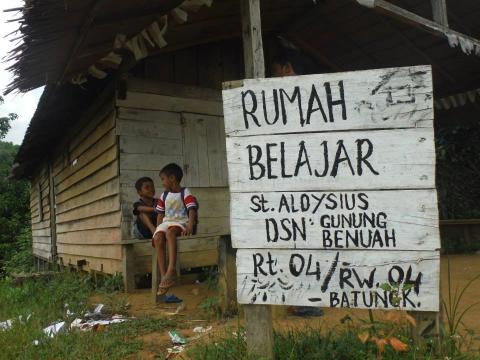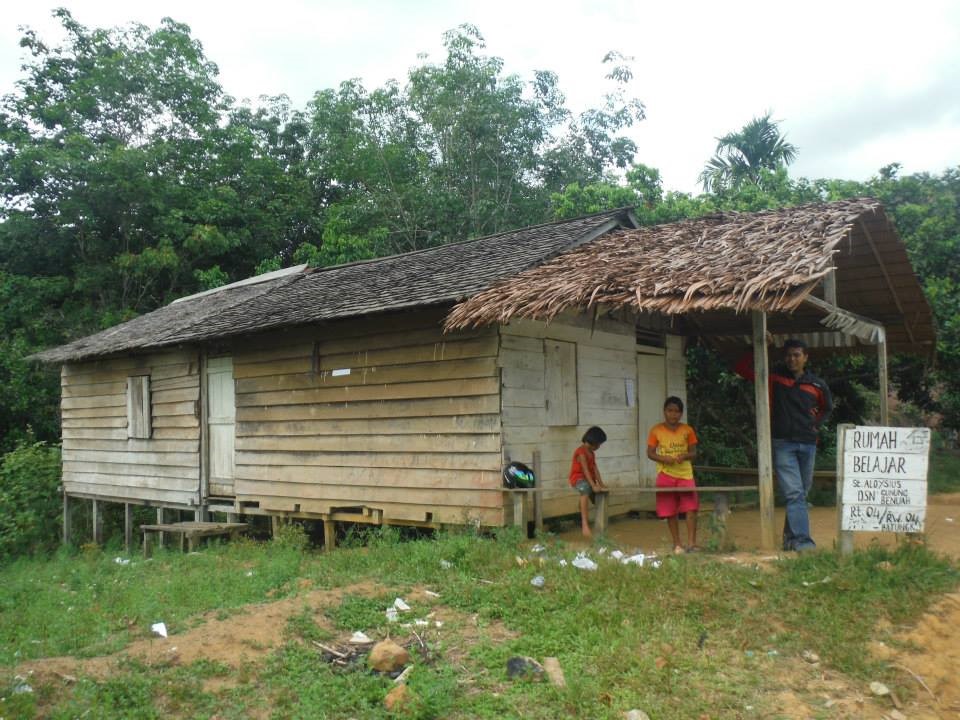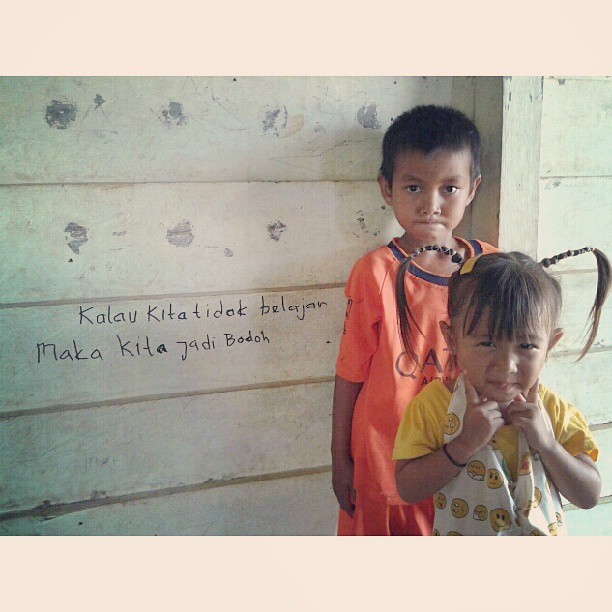Why is it so difficult to study

Teluk Bakung Village is located at Ambawang River in Indonesia. It is a beautiful place with a wide area of forest, rubber and palm oil plantation, crisscrossed by many rivers that are the main form of transportation.
Why would children walk several kilometers in the midday sun and 33° Celsius heat to a small, remote shack? Yet they come early and they wait patiently... for a humble cleric. They come despite many obstacles and barriers. They come because they want to learn.
In this area, schools do not provide good facilities. There are not enough teachers, teachers are not using good techniques, parents do not realize the importance of education, and even some children prefer to spend their time working in the plantations because their parents are poor and they can make some money.
In such a difficult situation, there was hope like a small candle in darkness - a cleric named Aloysius.
Since 2012, he has worked with the community to develop the Saint Aloysius study home, an after-school club for children. Despite the fact that he has no teaching credentials, and rhere is no formal curriculum, children usually get more knowledge from here than they do from the local school.
In 2014, World Vision International in Indonesia, through its local partner, Wahana Visi Indonesia began working to improve the quality of education in the Kubu Raya Area Development Programme. The ADP worked with a starter group of community leaders and members, who knew about the work of Aloysius and wanted to support and strengthen his study home. The ADP brought Aloysius together with parents, and partners such as local government and Christian College Fellowship, to work together to raise awareness of the importance of education, and improve the work of the study home. Wahana Visi also gave several trainings to community volunteers who want to teach at that study home, to assist basic education facilities for children, and to share about values of education and child rights.
It was my pleasure, when I was a Development Facilitator in that ADP, to support and work with this community to improve their non-formal education efforts. They were so eager for their children to learn. Looking back, there was some great progress, but also challenges to be faced. Children and volunteer teachers had to walk great distances from home to the study home. The tutors were all volunteers; they were willing, but had no formal training and had limited skills at the beginning. The infrastructure was very basic. On top of this, some neighboring communities were suspicious of Wahana Visi, thinking they had a hidden agenda to ‘Christianize’ the community, or to make a profit from them. Despite all these very real challenges, the children and parents took an active role in improving education opportunities in the community, and they now understand well the importance of education. It has been awe-inspiring for me to see how the community is now so much more concerned about the future for their children. Aloysius, Wahana Visi and the community, working together, bringing hope for the children.
“I believe that we can improve the quality of education together, this is about a better future for the children”, said Aloysius

